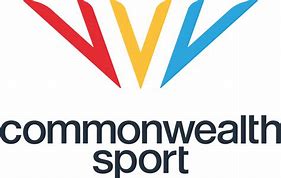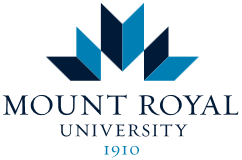2022 Mentor Coach
Carmyn James
CSC WCIP Goals
- Provide women intern coaches with ongoing mentorship from a qualified mentor coach, with a national or international coaching development opportunity, and enhanced professional development and learning opportunities
- Connect all participating women intern and mentor coaches in an ongoing supportive network
- Increase the number of high performance women coaches in Commonwealth sport in Canada
Mentor Coach: Carmyn James, ChPC
“The CSC WCIP is important to me is because it IS a formalized program to support upcoming women coaches.”
Sport: Athletics
Occupation: Carmyn is Technical Manager – Programs at Athletics Alberta and is responsible for the development of athletes, coaches, and officials.
Intern Coach: Jessica Zelinka
Athletic History: Throughout junior and senior high school in Richmond, B.C., Carmyn was often chosen as Female Athlete of the Year in the sports of volleyball, basketball, and track and field. Moving on to the University of British Columbia (UBC), she had to chose between volleyball and track field and chose the latter, specializing in high jump. Carmyn competed at Canadian Interuniversity Athletics Union (CIAU), now U Sports, championships and earned a UBC Big Block award (which honours the best from UBC Athletics), despite undergoing surgery on both knees during those years.
Why A Coaching Career? Following graduation in 1984 with a Bachelor of Physical Education degree, Carmyn began graduate studies in Athletic Injuries with the goal of becoming an athletic trainer. Halfway through her first year, her coach, the late Wilf Wedmann, suggested that she investigate the Coaching Science program and switch her major. Never having been coached by a woman, coaching as a profession had not occurred to Carmyn. However, she made the switch and completed a Master of Physical Education degree, specializing in Coaching Science, in 1988.
Coaching History: Carmyn, a Chartered Professional Coach (ChPC) and a Level 4 National Coaching Certification Program (NCCP) coach, started as an assistant coach of the men’s and women’s track and field team at UBC while completing her master’s degree. Upon graduation, she was asked by UBC athletics director, Bob Hindmarch, to become the head coach of the Thunderbird track and field team thanks to the recommendation of Thelma Wright, the first woman head coach of a UBC men’s team. Carmyn held the position until 2000.
One of her most successful athletes was high jumper Jeannie Cockcroft, a multiple national team member in the 1980s, with appearances at World Cups, Commonwealth Games, two World Universiades, and qualification for the 1988 Olympic Games, which she missed due to an injury.
Each year of her tenure, Carmyn led the Thunderbirds to the CIAU Championships and in 1992 was named CIAU Women’s Coach of the Year. She was president of the Track and Field Associations for Canada West and the CIAU. During this time she was an eight-time national team coach and jumps coordinator for Athletics Canada. Carmyn was the head coach of Canada’s senior track and field team to the 1995 world championships, the first woman in Canadian history to be named to such a position.
Carmyn next moved to Honolulu to become the head coach of the Rainbow Wāhine, the women’s track and field team at the University of Hawai’i. Over the next 17 years she resurrected a NCAA Division 1 program and led it to national recognition in athletics and academics. In 2010 she coached Amber Kaufman, the NCAA High Jump Champion. During her tenure in Hawai’i Carmyn graduated from the NCAA Women Coaches Academy.
In 2017 Carl Georgevski asked Carmyn to join his coaching staff at the University of Toronto. Her athletes included Emily Branderhorst, the top-ranked USport high jumper. Carmyn added NCCP Master Coach Developer, Learning Facilitator, Coach Evaluator, and AC mentor to her credentials.
Carmyn headed to Alberta in 2019 when COVID-19 broke out to make sure her mother stayed safe and healthy. She joined Athletics Alberta in January 2021 as the Technical Manager of Development. To date she has organized NCCP training for 218 coaches and has guided the NCCP certification of 33 coaches. She organized and hosted the Athletics Alberta Coach Development Series featuring four of Canada’s leading coaches.
Importance of the CSC WCIP to Carmyn: As an upcoming coach Carmyn was greatly supported by others: Wilf Wedmann, Lionel Pugh, Brian McCalder, Dr Gary Sinclair, Carl Georgevski, Dr Dick Mosher, Bob Hindmarch, Denis Landry, Gerard Mach, Alex Gardner, Thelma Wright, and Donna Baydock – to name a few. “We didn’t call it mentorship back then and there was nothing formal about it, but those people played a significant role in my life, planting seeds, opening doors, and giving me guidance. Without them, I definitely would not have experienced a professional career in coaching. I was fortunate to have such outstanding leaders in my world and I am greatly appreciative of their support. However, it wasn’t planned or formalized – I was lucky.
“The CSC WCIP is important to me is because it IS a formalized program to support upcoming women coaches. The financial support is one thing, but I am super impressed with the training program and the inspiring guest speakers. Although I was recruited to be a mentor, I feel that I am also a CSC WCIP mentee. At the end of each session, I say to myself: “WOW! Where was this professional development when I was an upcoming coach?”. The CSC WCIP not only recruits more women into coaching, but it prepares them to become sport leaders at the highest level. And, with more women in coaching leadership roles, recruitment of the next generation should be a less challenging task.”
Importance of the CSC WCIP for Jessica: “Jessica has the potential to be one of Canada’s top coaches. Not only does she thoroughly know the technical, physical, and psychological side of her sport because she is a two-time Olympian in the heptathlon, but she has the passion to help others reach their highest level of success. Athletes respect her from the get-go because of her athletic achievements. What the CSC WCIP does is provide Jessica with the softer but essential skills of being an elite and effective coach, including the leadership skills, the communication skills, and the organizational skills. Most importantly, the CSC WCIP training will give Jessica the confidence to lead.
Despite having won several international medals and with strong finishes at the Olympics Games and having been a coach for over five years, Jessica wondered if she was qualified to apply for the head coach position at the University of Calgary. Luckily for all of us, she was.”











